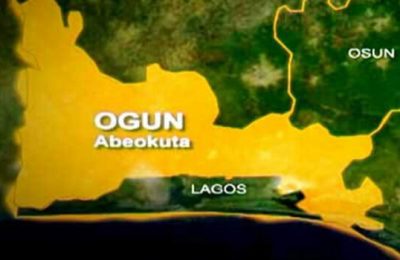


Aliko Dangote is one name that rings a bell not just in Nigeria but across the continent of Africa. Born 65 years ago in Kano, Nigeria’s second-largest city, Dangote started off as a young man with incisive business acumen. He sought opportunities in the most unlikely of situations. History, however, shows that industriousness runs right in his family. His great-grandfather was one of the richest men in West Africa, making his fortune from trading kola and ground nuts. Dangote’s father died when he was eight, leaving him to be raised by his maternal grandfather, who was a building materials trader.
After completing his secondary education, Dangote travelled to Egypt, where he earned a business degree from Al-Azhar University. He returned to Nigeria and launched his own cement trading company using money borrowed from his uncle. Dangote moved from Kano to Lagos and ramped up imports. He established the business that would eventually become the Dangote Group in 1981.
Dangote expanded his business throughout the 1980s and 1990s to include trading in sugar, flour, fish, rice, milk and iron. He, however, changed the company’s focus from trading to manufacturing in 1996 after visiting Brazil to study manufacturing. He thought there was an opportunity to establish a local business that would profit from satisfying the fundamental consumer needs of Nigeria’s expanding population. And this has given birth to one of the biggest conglomerates in the world today. In fact, there is hardly a home in Nigeria where a Dangote product is not used.

Dangote Cement
A division of Dangote Industries, which Dangote established in 1981 as a trading company with an initial focus on importing bagged cement as well as other goods like rice, sugar, flour, and salt, is Dangote Cement.

Over time, the group began to import bulk cement into the Apapa and Port Harcourt terminals, which it then bagged for distribution. It decided strategically to transform from a trading-based business into a fully-fledged integrated manufacturing operation throughout the 1990s. This was the starting point of the ambitious plan to dominate the cement industry in Africa.
Now, Dangote Cement is the largest cement manufacturer in Africa. The giant has a production capacity of 51.6 millions tonnes per year across 10 countries in Sub-Saharan Africa: integrated factories in 7 countries, a clinker grinding plant in Cameroon, and import and distribution facilities for bulk cement in Ghana and Sierra Leone. Together, these operations make it the largest and leading cement producer in sub-Saharan Africa.
Even as the influence of the man is felt across Africa, his contribution to Nigeria’s economy is mind-blowing. Dangote Cement, for instance, has three plants in the country: Obajana in Kogi State; Ibese in Ogun State; and Gboko in Benue State. With a capacity of 16.25Mta across five lines, the Obajana plant is the flagship facility and the biggest of the three factories in Nigeria, followed by the 12.0Mta plant at Ibese and the 4.0Mta plant at Gboko. These plants employ thousands of Nigerians and non-Nigerians across the country. According to a statement in October by Anthony Chiejina, Group Head Branding and Communications, Dangote Industries Ltd, Dangote Cement employs over 22,000 people directly, while a lot more are employed indirectly.
Beyond the employment of thousands of Nigerians and the consequent reduction of poverty, Dangote Cement also contributes hugely to the government through the prompt and adequate payment of taxes. Also, with the export terminals at Apapa and Port Harcourt, the behemoth exports to other African countries and attracts FX to Nigeria.
Dangote Fertiliser
In March of this year, President Muhammadu Buhari launched the Dangote Fertilizer Plant – another of Aliko Dangote’s huge investments in Nigeria. The plant occupies 500 hectares (1,235 acres) of land on the outskirts of Lagos and has the capacity to produce three million metric tons of urea annually.
With this huge capacity, the local demand of 1.5 million tonnes/year will be met, and the large surplus will be for export. Producing both urea and ammonia fertilizers, the plant, which cost Africa’s richest man $2.5 billion, is reckoned to be the world’s third-biggest fertilizer plant and second-biggest producer of urea-based fertilizer.
The coming commencement of operations of the fertilizer plant came at no better time. A huge population of the world is being threatened by hunger and food shortages, due partly to the escalation of the war between Ukraine and Russia. Russia and Ukraine are major suppliers of urea, potash and phosphate: key components of fertilizers.
The number of people on the edge of famine has jumped to 44 million from 27 million in 2019, the UN’s World Food Programme said in March, and parts of Africa could be plunged into hunger sooner than envisaged if food production is not ramped up, experts say. This is even as global fertilizer prices have been on the rise since 2020, surging as much as 70% in the past year.
So, the launch of the plant came at no better time. As President Buhari rightly pointed out during the launch, “The plant will greatly create wealth, drastically reduce poverty, and secure the future of our nation.”
He further explained that “the agricultural sector, another focal point of our economic policy, we expect a boom as fertiliser is now readily available. Many Nigerians who hitherto practised subsistence farming because of the non-availability of necessary inputs can now take up agriculture as a business. We expect a rise of a new breed of agropreneurs who will add value to farming and make the nation self-sufficient in food production.”
The Nigerian government has made no secret of its desire to increase foreign exchange earnings and diversify the economy of the nation away from dependence on oil. According to experts, the nation needs investments like those made by Dangote.
At the ceremony, Dangote enthused that the plant could earn Nigeria some $5 billion in export revenue every year.
He said that the new plant was an ambitious project that would create both direct and indirect employment, thereby reducing youth unrest, and that agriculture accounts for 20% of the country’s GDP.
Dangote Refinery
The Dangote Refinery is another massive investment the Dangote Group is undertaking. Billed to begin operation in a few months, the 650,000 barrels per day (BPD) integrated refinery project is expected to be Africa’s biggest oil refinery and the world’s biggest single-train facility.
The refinery covers a land area of approximately 2,635 hectares, which is about six times the size of Victoria Island. It is designed to process Nigerian crude with the ability to also process other crudes.
The pipeline infrastructure at the Dangote Petroleum Refinery is the largest anywhere in the world, with 1,100 kilometres to handle 3 Billion Standard Cubic Feet of gas per day. The refinery alone has a 435MW Power Plant that can supply all of Ibadan DisCo’s energy needs.
Indeed, it will meet 100% of the Nigerian requirement of all refined liquid petroleum products and also have a surplus of each of these products for export. 10.4 million tonnes of gasoline, 4.6 million tonnes of diesel, and 4 million tonnes of jet fuel can all be refined annually at the complex once it is fully operational.
Additionally, it will generate 32,000T of sulphur, 0.24MT of propane, 0.69Mt of polypropylene, and 0.5MT of carbon black feed. These outputs, in all estimations, are humongous and would have a great impact on the economy of Nigeria.
The ironic situation in Nigeria is that it exports crude oil and imports refined products because all of the government-owned refineries are moribund. But with the refinery coming on stream, it will completely end the importation of any liquid petroleum product as it can produce more than enough for the local market. Additionally, subsidy payments will be a thing of the past, and the huge amount spent will be invested in critical sectors of the economy, which will impact the lives of ordinary Nigerians.
In September, Moody’s, one of the leading global rating agencies, released a report on the state of Nigeria’s fiscal and external position and stated that the Dangote Refinery would lead to a modest improvement in Nigeria’s economy.
The effects of the refinery, according to experts, will be felt from Nigeria to the entire continent of Africa.
Dr. Akinwumi Adesina, president of the African Development Bank (AfDB), after touring the project recently, described it as the best industrialised project to happen to Africa, adding that the project would positively affect the economic growth and development of not only Nigeria but Africa as a continent.
The brain behind the project and chairman of Dangote Group, Aliko Dangote, sees the project as not about him but about Nigeria and Africa and about the thousands of people who are currently employed and working on the project site and thousands more who will be employed directly and indirectly.
Beyond the giant projects, the Dangote brand is so ubiquitous in Nigeria that almost every Nigerian is, in some way or another, impacted by the industrial spirit and philanthropic heart of the meek, soft-spoken man who is the second largest employer of labour in Nigeria.
From the cement plants to the fertilizer plant, the petroleum refinery project, the sugar refinery, the salt, flour and pasta production facilities, the Aliko Dangote Foundation, and the rest, Africa’s richest man has etched his name in the sands of time.
No doubt, Aliko Dangote makes being the man of the year look so simple. He is, indeed, in a class of his own.
YOU SHOULD NOT MISS THESE HEADLINES FROM NIGERIAN TRIBUNE
PICTORIAL EXPLAINER: How To Identify Fake New Naira Notes
The Central Bank of Nigeria (CBN) has released security features to help identify fake new naira notes. According to CBN’s template, the Security features to look out for are the following…
Ondo Councils’ Workers Shut Down Assembly Over LG Autonomy
LOCAL government workers under the aegis of Nigeria Union of Local Government Employees (NULGE), Ondo, on Tuesday, stormed the State House of Assembly, threatening a showdown with the lawmakers over the signing of local government autonomy…
FG To Discontinue Cash Withdrawal From Public Accounts
The Federal Government is putting the final touches to all necessary measures to stop cash withdrawal from federal, state, and local government accounts. The Director/Chief Executive Officer of the Nigerian Financial Intelligence Unit (NFIU), Modibbo Hamman Tukur, revealed…
Reps Probe Crude Oil Sales Over $2.4bn Revenue Loss
The House of Representatives on Tuesday unveiled plans to investigate the allegation bothering on the alleged loss of over $2.4 billion in revenue accruing from the illegal sale of 48 million barrels of crude oil export from 2014 till date…
Emefiele/DSS Tango: Falana Asks Judiciary To Treat Civil Liberty Cases Equally
LEADING rights lawyer, Mr. Femi Falana, on Tuesday addressed the controversial move by the nation’s secret police to arrest and detain the embattled Governor of the Central Bank of Nigeria (CBN), Godwin Emefiele…
EDITORIAL: CBN’s New Cash Withdrawal Limits
As a follow-up to its redesign of the N200, N500, and N1000 banknotes, the Central Bank of Nigeria (CBN) recently announced a new policy that mandates deposit money banks and other financial institutions to ensure that…







